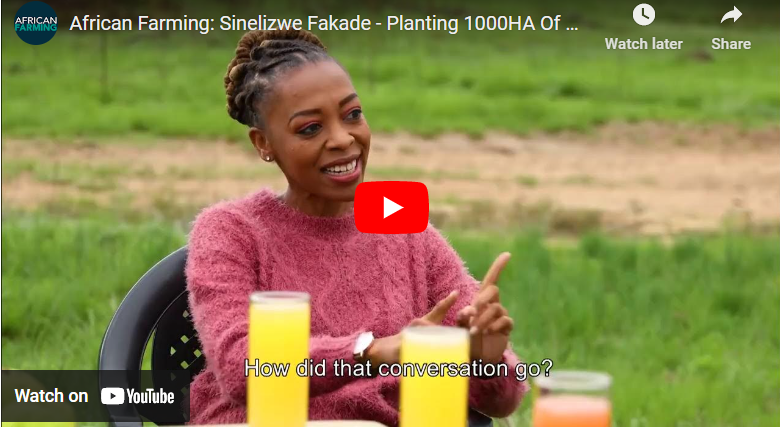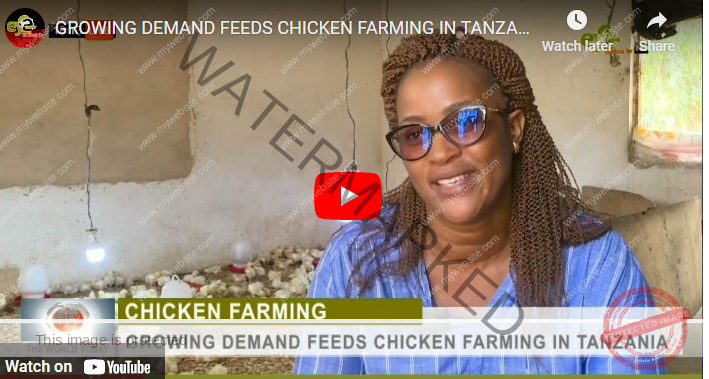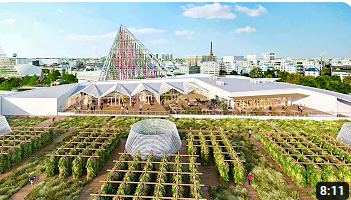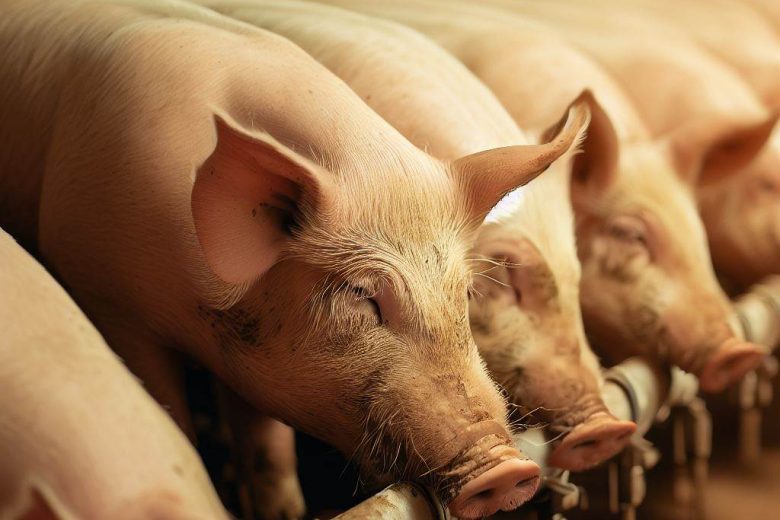Farming has long been a significant part of Africa’s economy and culture, providing employment and sustenance for millions of people across the continent. While many African farmers struggle to make ends meet, there are a select few who have achieved significant wealth through their farming practices.
These farmers have leveraged their knowledge, hard work, and business acumen to build successful farming operations that generate significant income and contribute to the economic growth and development of their countries.
Some of the most successful Farmers in Africa are Aliko Dangote, Rotimi Williams, Dr, Kwabena Darko and Justine Nakku.
Richest Farmers In Africa
Agriculture is the backbone of many African economies, providing food and income for millions of people. According to the African Development Bank, agriculture accounts for 32% of Africa’s GDP and employs 65% of the continent’s labor force.
Despite this, agriculture is often seen as a low-profit sector, with farmers struggling to make a living.
However, some farmers in Africa have managed to achieve tremendous success and become wealthy through their farming practices.
Read Also: Richest Poultry Farmers In Uganda [Top 6 Ranked]
#1. Aliko Dangote – Nigeria
Net Worth: $14.5 billion
Aliko Dangote, born in Kano, Nigeria in 1957, is a Nigerian business magnate, investor, and owner of the Dangote Group, one of the largest conglomerates in Africa.
He is also a well-known philanthropist, having donated billions of dollars to various causes in Africa.
Farming Business
Aliko Dangote’s farming business is a significant part of his overall business empire. In addition to his interests in manufacturing, cement production, and telecommunications, Dangote has invested heavily in agriculture.
He owns and operates large-scale farms across Nigeria, covering thousands of hectares of land.
Read Also: Top 5 Richest Dairy Farmers In India
One of Dangote’s most successful ventures in agriculture is his investment in rice farming. His company, Dangote Rice Limited, has acquired several rice mills and has invested in the production and distribution of high-quality rice in Nigeria.
The company’s rice production efforts have helped to reduce Nigeria’s dependence on rice imports, which has contributed significantly to the country’s food security and economic development.
Read Also: Top 5 Richest Diary Farmers In Kenya
In addition to rice farming, Dangote’s farms also produce wheat, tomatoes, and other crops. He has invested in sugar plantations and milling facilities, making his company, Dangote Industries Limited, one of the largest producers of sugar in Nigeria.
Through his investments in the agricultural sector, Dangote has created jobs for thousands of Nigerians and has helped to drive economic growth and development in the country.
Dangote’s success in agriculture has not gone unnoticed. In 2015, he was awarded the Nigerian government’s National Productivity Order of Merit for his contributions to the country’s economy.
Read Also: Top 5 Richest Diary Farmers In South Africa
He has also received numerous awards and recognition for his investments in agriculture, including the Nigeria Agriculture Awards’ Agribusiness CEO of the Year in 2019.
Net Worth
Aliko Dangote’s net worth is estimated to be over $14.5 billion, making him the richest man in Africa and one of the wealthiest people in the world. His significant investments in agriculture and other sectors have contributed to his massive wealth. Rotimi Williams’ net worth, on the other hand, is estimated to be over $30 million. His success in agribusiness has earned him a spot on Forbes’ 30 Under 30 Africa list.
Read Also: Top 10 Richest Diary Farmers In The World
#2. Rotimi Williams – Nigeria
Net Worth: $30 million
Rotimi Williams, born in Lagos, Nigeria in 1980, is a Nigerian agribusiness entrepreneur, and a former Journalist.
In 2012, he left his job as an editor for a Nigerian daily newspaper to pursue a career in agriculture.
His interest in agriculture stemmed from his realization of the potential of Nigeria to become self-sufficient in rice production and reduce its dependence on imports.
Read Also: Top 5 Richest Famers In America
Farming Business
Rotimi Williams started his farming career in 2013 after leaving his job in the banking industry.
He founded Kereksuk Rice Farm, which is located in the Nasarawa State of Nigeria. The farm covers an area of 45,000 hectares and has the capacity to produce over 70,000 metric tons of rice annually.
Williams’ success in agribusiness has earned him numerous awards and recognition, including the Nigerian Young Farmer of the Year Award in 2017.
Net Worth
Rotimi Williams’ net worth, on the other hand, is estimated to be over $30 million. His success in agribusiness has earned him a spot on Forbes’ 30 Under 30 Africa list.
#3. Dr Kwabena Darko – Ghana
Net Worth: over $130 million
Dr Kwabena Darko is a Ghanaian businessman and farmer who was born in 1935 in Assin Druikrom. He completed his secondary education at Achimota School in Accra before proceeding to the United Kingdom to pursue further studies in engineering.
After completing his studies, he worked for several multinational companies before returning to Ghana in 1975 to start his own business.
Read Also: Top 12 Richest Farmers In Australia
Farming Business
Dr Kwabena Darko Dr Kwabena Darko is the founder and owner of Darko Farms and Company Limited, a company that is involved in poultry production, hatchery, and feed milling.
The company, which was founded in 1986, is now one of the largest poultry producers in Ghana, with a production capacity of over 150,000 birds per week.
In addition to his poultry business, Dr Darko is also involved in real estate, banking, and insurance.
Net Worth
- Dr Kwabena Darko Dr Kwabena Darko’s net worth is estimated to be around $130 million, making him one of the richest farmers in Africa. His wealth comes mainly from his poultry business, which has been successful in part due to his expertise in engineering, which has helped him to design and build modern poultry facilities.
#4. Justine Nakku – Kenya
Net Worth: $10 million
Justine Nakku is a Kenyan farmer who has become a millionaire through her successful farming business. She was born in the 1960s in the Nakasongola district of Uganda. She started farming when she was young, and eventually moved to Kenya where she expanded her business.
Farming Business
Justine Nakku is the founder and owner of Victoria Seeds Limited, a company that produces and sells high-quality vegetable seeds in Kenya. She started the business in 2000 with just a small plot of land, and has since grown it into a successful enterprise with over 1,000 acres of land under cultivation. The company now exports its seeds to several African countries, and has won several awards for its high-quality products.
Net Worth
Justine Nakku’s net worth is estimated to be around $10 million, making her one of the richest female farmers in Africa.
Her wealth comes from her successful vegetable seed business, which has been recognized for its high-quality products and has helped to increase food security in Kenya and other African countries.
It should be noted that the net worth figures provided for the mentioned farmers are estimates, and the actual net worth may be either higher or lower than the values stated.
The Type of System the Richest Farmers Use
Successful farmers in Africa often use a combination of traditional and modern farming methods to maximize their yields.
These may include crop rotation, intercropping, and the use of fertilizers and pesticides.
However, many of the richest farmers in Africa have also embraced technology, such as precision farming techniques and the use of drones to monitor their farms.
Lucrativeness of Farming in Africa
Contrary to popular belief, farming in Africa can be highly lucrative. According to a report by the United Nations, Africa’s food market is projected to be worth $1 trillion by 2030.
Furthermore, many African countries are prioritizing agriculture as a key sector for growth and development, and are implementing policies and initiatives to support farmers.
Successful Tips About the Richest Farmers in Africa
To become a successful farmer in Africa, there are several tips that can be learned from the richest farmers.
First, it’s essential to have a passion for farming and a willingness to work hard.
Second, successful farmers in Africa often have a keen sense of business acumen, which helps them make sound financial decisions.
Finally, innovation is key, whether it’s adopting new technologies or exploring new crops and markets.
Factors that Contribute to Farming in Africa
There are several factors that contribute to successful farming in Africa. One of the most significant is access to finance, as many farmers struggle to obtain loans or credit to purchase inputs such as fertilizers and seeds.
Additionally, access to markets and infrastructure such as roads and storage facilities is essential for farmers to reach buyers and preserve their crops.
Finally, government policies and initiatives such as subsidies and training programs can also support farmers in their efforts to succeed.
Challenges of Farming in Africa
Despite the potential for wealth creation, farming in Africa is not without its challenges.
Climate Change
Climate change is one of the biggest challenges facing farmers in Africa. Changes in rainfall patterns, increased temperatures, and extreme weather events such as droughts and floods can all affect crop yields and make farming more difficult. Climate change can also lead to soil erosion, land degradation, and desertification, which can further exacerbate the challenges facing farmers.
Limited Access to Markets
Many farmers in Africa struggle to access markets where they can sell their products at fair prices. This is often due to poor infrastructure, limited transportation options, and a lack of market information. As a result, farmers may be forced to sell their products to middlemen who offer low prices, which can limit their ability to earn a decent income.
Limited Access to Finance
Access to finance is a major challenge for farmers in Africa, particularly small-scale farmers. Many farmers struggle to obtain loans or credit to purchase inputs such as seeds, fertilizers, and pesticides. This can limit their ability to improve their yields and income, and can also make it difficult for them to invest in new technologies and practices that could help them become more successful.
Lack of Knowledge and Skills
Many small-scale farmers in Africa lack the knowledge and skills needed to improve their yields and income. This is often due to a lack of access to training and extension services, which can help farmers learn about new technologies, practices, and markets. As a result, farmers may be unable to take advantage of new opportunities or improve their farming practices to become more successful.
Policy and Regulatory Barriers
Policy and regulatory barriers can also make it difficult for farmers in Africa to succeed. For example, government policies may limit access to markets, impose high taxes or tariffs on agricultural products, or limit access to inputs such as seeds and fertilizers. Additionally, regulatory barriers such as complex land tenure systems or burdensome licensing requirements can make it difficult for farmers to operate and succeed.
Conclusion
Farming in Africa can be a lucrative and rewarding profession for those who are willing to put in the work and adopt innovative farming practices. By learning from the successful farmers in Africa and addressing the challenges facing the sector, it’s possible for more farmers in Africa to achieve significant wealth through their farming practices. Access to finance, markets, and infrastructure are key to success, and government policies and initiatives can play a critical role in supporting farmers.





